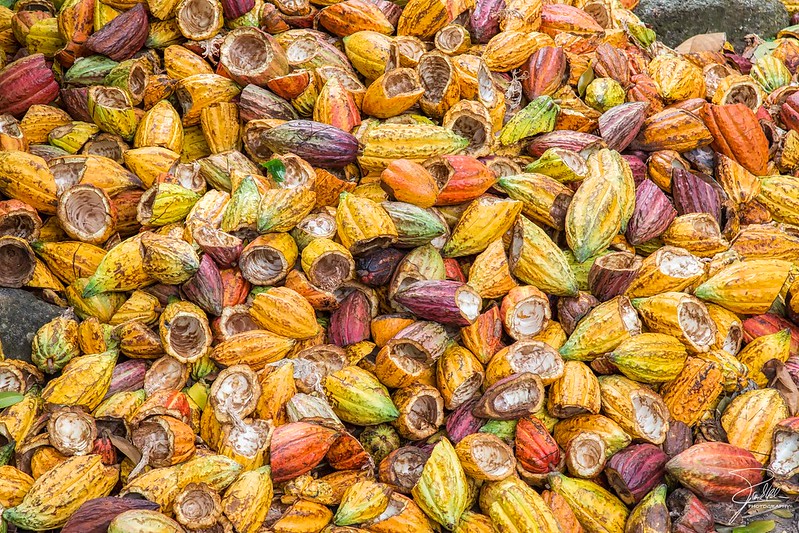
Nestlé has announced that from October 2020 KitKats will no
longer contain Fairtrade cocoa and sugar.
Instead, Nestlé is moving to the promotion of its own Cocoa Plan and the
Rainforest Alliance certification. As a
result 27,000 sugar and cocoa farmers will lose the Fairtrade Premium annually,
to be replaced by funds promised over the next two years and an alternative
premium without the same guarantees as Fairtrade.
Ghana and Cote D’Ivoire are the world’s two largest cocoa
producers. Farmers in these countries
live a precarious existence. Shockingly, a
report last year from the Fairtrade Foundation showed that a typical
farmer’s income was around 74p
per day while the extreme poverty line is around £1.41 per day.
Fairtrade helps farmers to earn a reliable and sustainable income in reward for their investment and work. Fairtrade is the only certification model to provide a minimum floor price. This is vital in the event of the sudden decline of world market prices for commodities; a regular occurrence in commodities such as cocoa. Nestlé states that the move away from Fairtrade is a part of its commitment to sustainable cocoa sourcing throughout the global supply chain. This involves expanding Rainforest Alliance and Utz certification criteria. Nestlé appears to recognise that farmers will lose out with respect to guaranteed income. It says it is looking to mitigate this with additional support over the next two years.
But ultimately, ending Fairtrade will mean that farmers will have less of a say in how they invest in their communities, and will be worse off and will be less secure when global prices drop. Fairtrade provides farming cooperatives with a Fairtrade Premium about £190 per tonne of cocoa beans. It provides funding for community projects such as building schools or health centres, or for developing farms and cooperatives and improving cocoa productivity and quality. In West Africa, producer groups frequently use the Fairtrade Premium to train and empower women farmers.
Under Nestlé’s Cocoa Plan, farmers will receive a lower premium and there is lack of clarity over possible restrictions on this premium and degree of control provided to producer groups. Importantly under the Fairtrade rules, the producers’ cooperatives themselves have the flexibility to spend the Fairtrade Premium according to the needs of farmers. Aminata Bamba, Head of Sustainability for the ECOOKIM group of cooperatives in Cote D’Ivoire, explains
“All the decisions are made together on how to use the Premium. Each
cooperative decides how they want the Premium to be spent. All members have
been part of the discussion. Fairtrade is about transparency and the way we
make decisions together.”
Join with us in supporting hard-working producers and their wider communities. Please ask Nestlé to reconsider its withdrawing from Fairtrade on cocoa and to make sure that KitKat in the UK remains fairly traded.
Take Action: –
- Sign the petition at Change.org – http://chng.it/TzQPFYNCVS
- Write to Nestlé to ask the company to continue to support Fairtrade or otherwise to guarantee that farmers will not be worse off, either financially or in terms of their control over the premiums, now or in the future.
If you can keep your message down to 1000 characters you can use the online form here: – https://apps.nestle.co.uk/nestle/contact/ - Or Tweet to Nestlé using the twitter handle @NestleUKI
Emma Georgette, a member of the EKOOKIM group of cooperatives: –
“Since I am member of the cooperative, my life has changed. With the support of the cooperative and the agricultural training. I could increase my cocoa production and thereby increase our income as well. We are really happy.”
The Revd Nigel Uden and Derek Estill, Moderators of the URC General Assembly
and the Revd John Proctor, URC General Secretary : –
“The United Reformed Church is strongly committed to supporting and endorsing fair trade, and we regard very highly the work of the Fairtrade Foundation. The recent news from Nestle is deeply disappointing. Our luxury – chocolate – has been other people’s lifeline. Cutting some of these connections would leave a very sour taste indeed. ”
<!–
–>
Source
